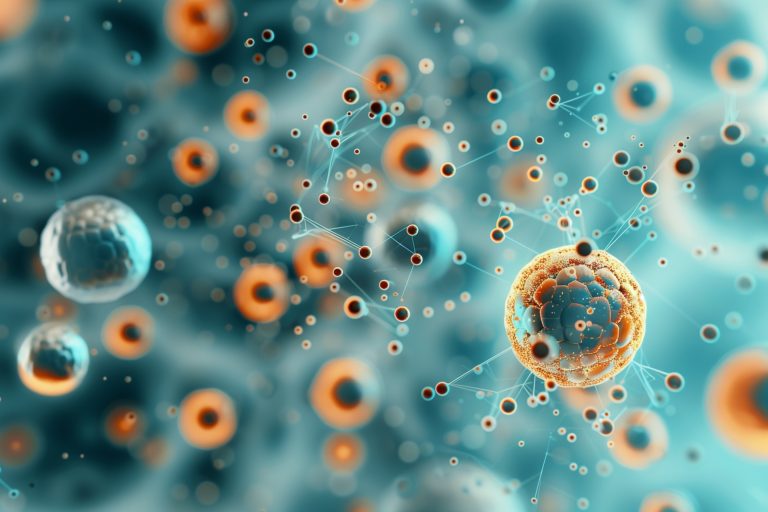
It’s often said that people with arthritis should avoid eating beans because they’re believed to worsen symptoms. But is there any real scientific evidence supporting these claims? Let’s have a closer look at what science has to say about beans and how they work with arthritis.
Contrary, consuming beans regularly offers numerous benefits. Varieties like red beans, kidney beans, and pinto beans are excellent sources of antioxidants. Additionally, these beans assist in regulating CRP (C-reactive protein) levels, which helps in managing joint inflammation and swelling.

What is C-reactive protein?
C-reactive protein (CRP) is a substance produced by the liver in response to inflammation. Its levels in the blood rise in response to acute and chronic inflammation. High CRP levels can indicate the presence of inflammatory conditions, such as infections, autoimmune diseases, and chronic diseases like arthritis.
Here’s what science says!
1. Anti-Inflammatory Properties – Beans are packed with antioxidants and anti-inflammatory compounds, including phytonutrients and fiber, which are crucial for reducing inflammation. Inflammation is a key factor in arthritis, particularly rheumatoid arthritis (RA). A study published showed that there is a potential anti-inflammatory effect of legumes, like beans, that can lower inflammatory markers in the body. Regular consumption of fiber-rich foods, like beans, has also been linked to a reduction in C-reactive protein (CRP), an indicator of inflammation, which is often elevated in people with arthritis.

2. Rich in Nutrients Beneficial for Joint Health – Beans provide vital nutrients such as magnesium, folate, iron, and zinc, which support bone and joint health. Magnesium, in particular, has been studied for its role in reducing chronic inflammation. Research published in the National Library of Medicine indicates that adequate magnesium intake may help mitigate the risk of inflammatory conditions like arthritis.
3. Plant-Based Diets and Rheumatoid Arthritis – Several studies suggest that adopting a plant-based diet, including beans, can reduce symptoms of rheumatoid arthritis. One study found that those following a vegetarian or vegan diet experienced less pain and morning stiffness associated with RA. The fiber in beans may also promote gut health, which is increasingly linked to improved immune function and lower systemic inflammation—both important factors for those managing arthritis.

Limitations:
1. Beans as Part of a Balanced Diet, Not a Cure-All – While beans are rich in nutrients that support overall health, no conclusive evidence shows that they can “cure” arthritis. Experts agree that while beans may help alleviate some symptoms due to their anti-inflammatory properties, they should be part of a balanced diet that includes a variety of nutrients essential for joint health, such as omega-3 fatty acids, vitamin D, and calcium.
2. Individual Responses Vary – Everyone’s body responds differently to dietary changes. While beans may help some people with arthritis reduce inflammation, others might not experience significant improvements. Additionally, people with certain digestive issues or intolerances might find beans difficult to digest due to their high fiber and lectin content.
The scientific evidence and limitations discussed indicate that while beans are not a miraculous remedy, they do provide significant benefits when included in an anti-inflammatory, nutrient-dense diet that can aid in managing arthritis symptoms. Scientific studies recommend that including beans in your diet may contribute to less pain and inflammation, particularly for those with rheumatoid arthritis (RA), but they are not a standalone solution for arthritis management. The best approach includes a comprehensive dietary plan, exercise, and, in some cases, medical treatment for optimal joint health.
By focusing on a plant-forward diet rich in beans, alongside other healthy habits, people with arthritis may experience symptom relief, but more research is needed to understand the extent of these benefits fully.
References
Leonaura Rhodes. 2020. Anti-Inflammatory Foods: What to Eat for Inflammation
Jihad Alwarith, Hana Kahleova, Emilie Rembert, Willy Yonas, Sara Dort, Manuel Calcagno, Nora Burgess, Lee Crosby, and Neal D. Barnard. 2019. Nutrition Interventions in Rheumatoid Arthritis: The Potential Use of Plant-Based Diets. A Review


